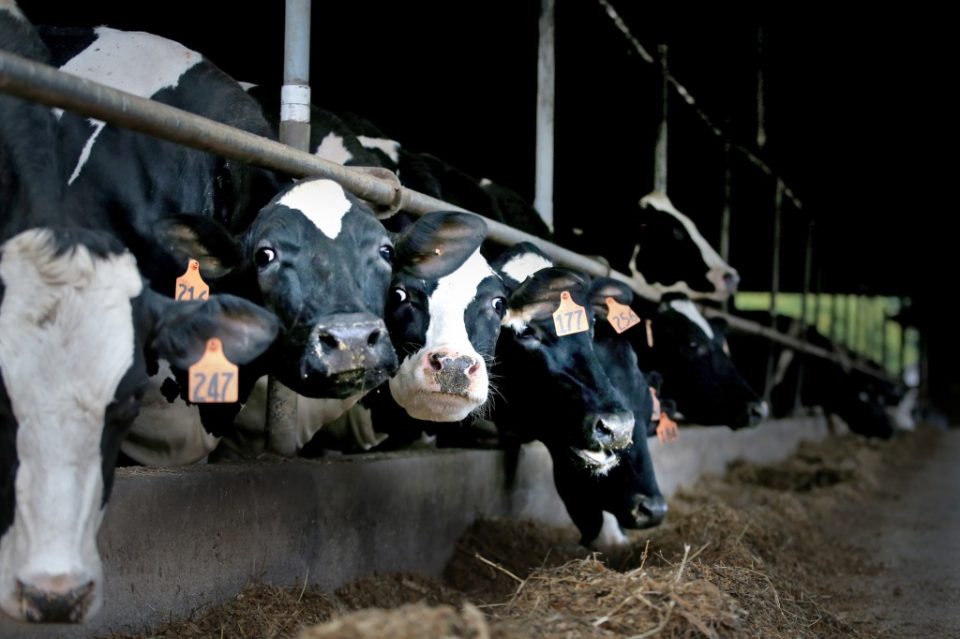Kraft’s Philadelphia Cream Cheese spread across headlines this week for a reason one may not suspect: they’re asking customers not to make a cheesecake with their cream cheese this holiday season due to supply chain shortages – and paying them for it.
“This is not an empty shelf,” a clip on the company’s promotional website, spreadthefeeling.com, says, while panning the camera across an empty shelf. “It’s a holiday tradition waiting another year.”
Instead, the narrator suggests making or buying brownies, cupcakes or “anything that will make you feel anything in that cheesecake-shaped hole in your heart.” Over two days this week, the company offered a limited number of $20 digital rebates for dessert purchases made this holiday season.
Although so far, Boston-area bagel shops including Finagle a Bagel and Bagelsaurus have not reported cream cheese shortages, this is just the tip of the animal supply shortage iceberg.
A study, “Impact of the COVID-19 pandemic on food production and animal health,” released earlier this month in the journal Trends in Food Science & Technology highlighted the supply chain strain COVID-19 is placing on the global food supply. The livestock sector has been particularly hard-hit, but the study listed “(m)ilk and meat industries, animal and animal-product processing industries such as slaughterhouses, and poultry sectors” as being negatively affected by COVID-19.
As in many other industries, workforce shortages have contributed to food shortages, especially when COVID-19 spreads through the close quarters of many of these workplaces. Because many of the work environments are loud, workers often shout to converse during the workday, further spreading the aerosols that could spread COVID-19 through a workplace, the study said. Many migrant workers, who often make up the bulk of the industry’s employees, had to return to their home countries during the pandemic, further exacerbating the crisis.
Pandemic-induced lockdowns have also affected the raw materials pipeline needed to feed animals, depriving them of essential nutrients. Argentina, for example, had to reduce its soybean exports by half. The U.S. and Brazil also had to reduce their soy exports– a key ingredient in animal feeds.
Of course, these shortages trickle down to price tags: some parts of India and Africa have seen their animal feed prices soar by 15% since the pandemic.
Other necessary tools of the animal trade are also running low, including farming supplies, animal feed additives like antibiotics and vitamins and veterinary care.
These interlocking crises have already had an outsized impact on developing countries, causing even more food insecurity and hunger there, the study said.
The study’s authors recommended remedies including masks and vaccination against COVID-19 for staff, and for the government to offer financial support for struggling food producers.


